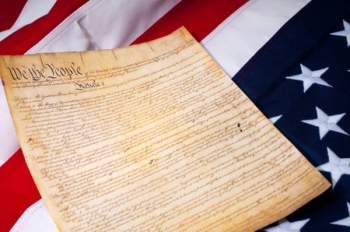
Frisby v. Schultz

Frisby v. Schultz: The Background
The case of Frisby v. Schultz deals with Robert Braun and Sandra Schults—two staunch pro-life supporters who gathered like-minded citizens together to protest in front of the residence of a local doctor who performed abortions.
In response to the protesting efforts, the city of Brookfield, Wisconsin passed a law against all protests and picketing in front of residential homes except for labor disputes. Following the advice of local attorneys, the city altered the law to ban labor picketing as well. The purpose of the law was to promote the protection and preservation of residential homes. When enacted, Braun and Schultz, stopped their protest and filed a lawsuit in federal district court, claiming that the law violated their First Amendment rights. The court ruled it would issue a permanent injunction against the local law unless it altered and narrowed in scope. The United States Court of Appeals of the Seventh Circuit ultimately affirmed that the local law violated the resident’s First Amendment rights.
Frisby v. Schultz: The Question
The case of Frisby v. Schultz asked whether a city law that prohibits picketing in front of residential homes violates the protestor’s First Amendment rights.
Frisby v. Schultz: The Decision
In a 6 to 3 vote, the United States Supreme Court ruled that the law does not violate the resident’s First Amendment Rights. In Frisby v. Schultz, Justice Sandra Day O’Connor delivered the opinion where the court held that since the street constituted a public forum, the ban must satisfy strict standards to be set in place. Since the city’s ban was regarded as “content neutral”, it leaves ample alternative channels of communication and therefore serves as a significant government interest. Because of this, the United States Supreme Court in Frisby v. Schultz ruled that the law passed the strict standards and could indeed remain in effect. The city government, as ruled by the United States Supreme Court, maintained a legitimate purpose in protecting the homes of its residents and did so without favoring certain ideas over others or eliminating the resident’s ability to openly communicate an idea in a public forum.



















